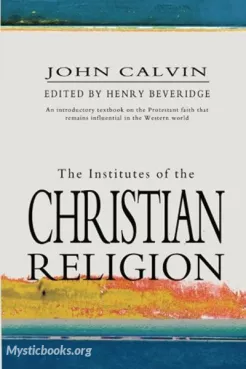
On the Duties of the Clergy
'On the Duties of the Clergy' Summary
On the Duties of the Clergy was published in about 391 AD. It was written to motivate the clergy of his diocese so that they would conduct their lives in a manner appropriate to their vocation. With his immense background in the Classics, Ambrose modeled his treatise on Cicero's De Officiis. Hence, the Latin title of his work is De Officiis Ministorum.
He begins by reiterating that what he is about to say has already been taught to his clergy, but he would like to refresh their memory and ensure that they have indeed imbibed the right lessons. One of the devices he uses to convey his teachings is by replacing the old Roman heroes with Old Testament saints. On The Duties... is divided into three main books. In the first book he describes duties which are “ordinary” and those which are “perfect.” Duties to parents, elders, and the cardinal virtues are discussed here. In the second book, he looks at the “expedient” aspects of life. The third book deals with “duties of perfection.” He exhorts the clergy to consider not only what is duty, or perfect or expedient, but to ascertain what is good for all.
As an early piece of ecclesiastical writing, On the Duties of the Clergy makes interesting reading whether you're drawn to religious writings or not.
Book Details
Language
EnglishOriginal Language
Published In
391Authors

Saint Ambrose
Rome
Ambrose venerated as Saint Ambrose, was the Bishop of Milan, a theologian, and one of the most influential ecclesiastical figures of the 4th century. Ambrose was serving as the Roman governor of Aemil...
Books by Saint AmbroseDownload eBooks
Listen/Download Audiobook
- Select Speed
Related books

Spring and Fall by Gerard Manley Hopkins
LibriVox volunteers bring you eleven different recordings of Spring and Fall, by Gerard Manley Hopkins. This was the weekly poetry project for the wee...

Three Essays on Religion by John Stuart Mill
In this essay, Mill argues the idea that the morality of an action can be judged by whether it is natural or unnatural. He then lays out the two main...

Hofgedachten by Jacob Cats
Hofgedachten is a collection of religious meditations written in verse by Jacob Cats, a prominent Dutch poet of the 17th century. Cats's poetic refle...

Institutes Of The Christian Religion Book 1 (Allen Translation) by John Calvin
In this, Calvin lays out his fundamental beliefs about the Christian faith, including the nature of God, the nature of humanity, and the means by whic...

Büchlein vom Warten by Margarethe von Sydow
In „Büchlein vom Warten“ erforscht Margarethe von Sydow, unter dem Pseudonym Franz Rosen, die vielfältigen Facetten des Wartens. Sie beleuchtet dieses...

A Confession by Leo Tolstoy
The story begins with the Eastern fable of the dragon in the well. A man is chased by a beast into a well, at the bottom of which is a dragon. The man...

Mushrooms on the Moor by Frank W. Boreham
"Mushrooms on the Moor" takes readers on a captivating journey through the mystical moors and verdant glens, where Frank W. Boreham weaves a tapestry...

Grandma's Miracles; or, Stories Told at Six o'Clock in the Evening by Pansy (Isabella Macdonald Alden)
Grandma's Miracles is a collection of short stories intended for children, each drawing upon a specific verse from the Bible. The stories center aroun...

All the World by Charles Monroe Sheldon
Set in the aftermath of the Great War, "All the World" tells the story of a small town struggling to adjust to the return of soldiers and the shifting...

The Posthumous Essays of John Churton Collins by John Churton Collins
John Churton Collins was a literary critic who lived from 1848-1908. In 1904 John Collins became professor of English literature at Birmingham Univers...
Reviews for On the Duties of the Clergy
No reviews posted or approved, yet...